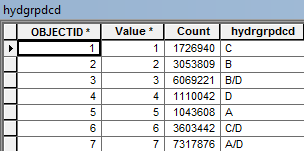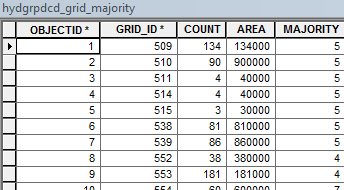I have to perform ArcGIS zonal statistics on a raster, but the column I am interested in is not the 'value' column. Now, I can reclass the raster so that the column of interest becomes the 'value' column. However, the reclassification is super slow (reclassifying a 60 m raster for the US Midwest, length of reclass ASCII file ~500,000 rows.)
Is there any way I can skip the reclassification and just perform zonal statistics on my column of interest? Alternatively, any tips on making the reclassification process much faster will help too. Currently the reclassification is on course to take 10 hours to finish.



